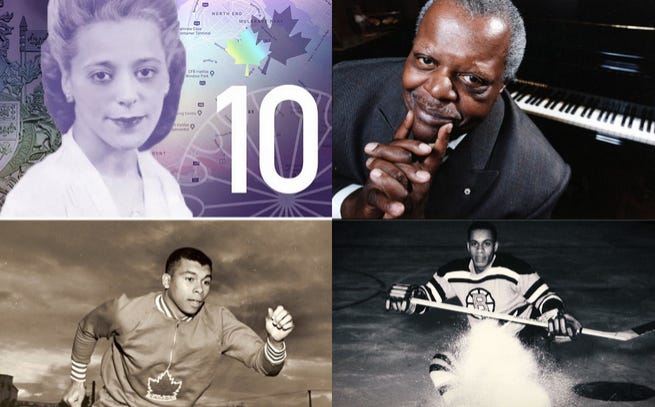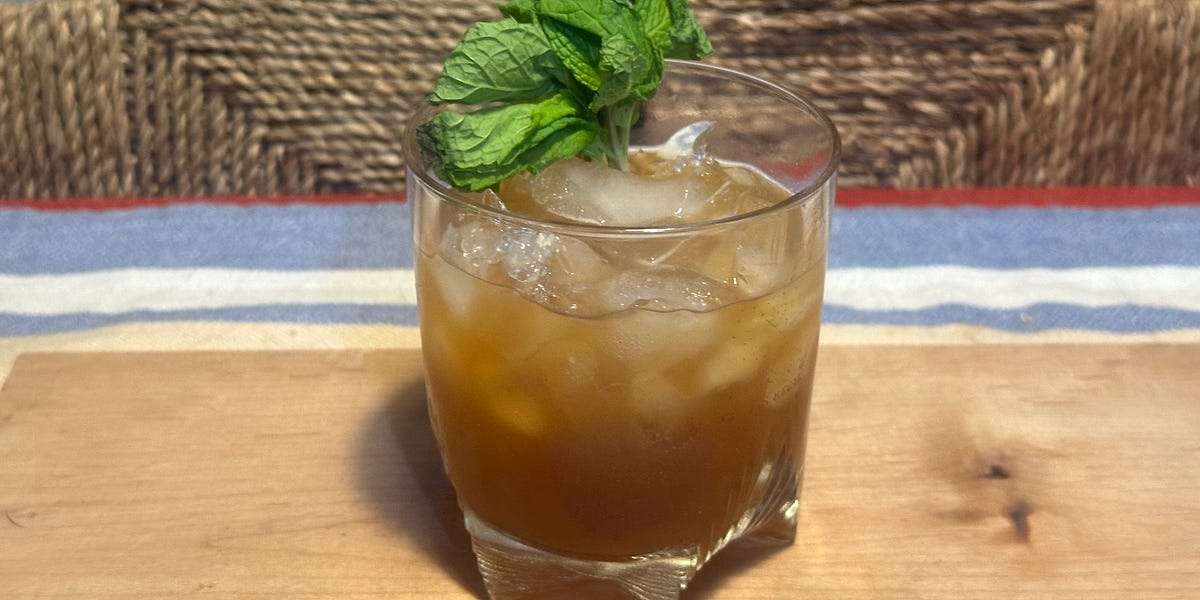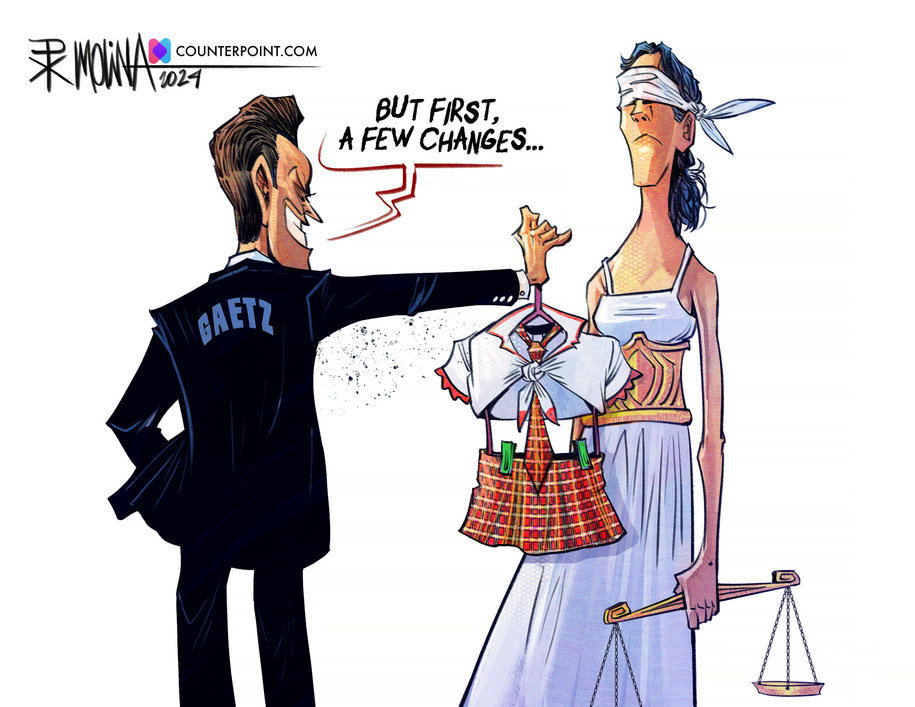The Great White North earned the nickname due to all the snow rather than for being colonized by Europeans, but the country is still pretty much Scandinavia in terms of ethnic diversity, especially outside major cities and First Nation reserves, with more than two-thirds of people who bother to respond to government surveys identifying as Caucasian.
Back in the early aughties, the CBC, the national public broadcaster — which is a bit like if PBS and NPR made a baby who also churns out episodic TV dramas nobody wants to watch — ran a much-hyped campaign to choose the country’s Greatest Canadian.
The only person of color to make the top 10 was environmental activist and living Lorax David Suzuki, while another contender was a bigoted blowhard and since-fired hockey analyst named Don Cherry.
While it would’ve been hugely embarrassing to pick an unhinged, dull-witted dotard as our most celebrated citizen, it wouldn’t have been nearly as consequential as actually putting one in charge of the place.
Ahem.
The eventual winner was Kiefer Sutherland’s grandpa, Tommy Douglas, a socialist from Saskatchewan who is better known as the architect of the country’s free healthcare system, which is a prime example of the fundamental differences between Canada and the US — see also: guns — although this was 20 years ago when society was a hell of a lot saner, and the CBC’s left-leaning core audience isn’t exactly representative of the entire country.
There were 50 names in total to choose from in the online contest. Not one was Black.
If you were to ask a random person on the street to name a famous Black Canadian, they would probably tell you to go away and stop bothering them. Or maybe name-check Drake because the rapper is everywhere now and never shuts up about being from Toronto.
It would still be a much better answer than disgraced former newspaper baron and current Trump-fluffer Conrad Black, who isn’t Black.
While not many of them are household names, there are countless Black Canadians who have made major historic contributions to the world. Here are just a few of them.
Viola Desmond is known as Canada’s Rosa Parks, not just because she stood up against racial discrimination but also because she did so while refusing to give up her damn seat. Desmond, the owner of a beauty salon in Halifax, was jailed overnight for sitting in a whiteys-only section of a movie theater and convicted of tax evasion due to the one-penny difference between ticket prices.
This was in 1946, so Parks, “the first lady of civil rights,” could arguably be known as America’s Viola Desmond.
She received a posthumous pardon in 2010, and her estate was reimbursed the $26 fine with interest. Desmond’s face has graced Canadian $10 bills ever since bumping Sir John A. Macdonald, the country’s first prime minister, from the spot in 2018.
Which surely pissed Don Cherry off.
Her maiden name happens to be Davis, so there’s a serendipitous casting opportunity here to have EGOT-winner Viola Davis play her in a more substantial biopic than the Heritage Minutes episode below:
While a wronged beautician from Halifax is known as our Rosa Parks, a man from Fredericton, New Brunswick, is often referred to as Canada’s Jackie Robinson for breaking the color barrier in his sport of choice.
Willie O’Ree was the first Black athlete to play in the National Hockey League, first suiting up for the Boston Bruins in a game against the Montreal Canadiens in 1958.
While he didn’t set anything close to the records Robinson did in baseball, O’Ree played a total of 45 games in the big league despite being blind in one eye after taking a slapshot to the face early in his hockey career, a condition he somehow managed to keep secret from his teammates.
There wasn’t another Black player to join the league for another 16 years, also surprise surprise a Canadian, like most Black NHLers even today.
O’Ree, 88, currently serves as the NHL’s diversity ambassador and presumably still carries a grudge against late Chicago Blackhawk Eric Nesterenko — Rob Lowe’s dad in Youngblood — who viciously broke both O’Ree’s nose and front teeth with the butt-end of his stick for having the audacity to be good at hockey while Black.
If you’ve ever wondered where the term “the Real McCoy” came from, it’s this guy.
Inventor Elijah J. McCoy was born in Ontario to parents who fled Kentucky for obvious reasons. He eventually moved to Michigan for better opportunities, not unlike the editor of this here mommyblog did. After doing a mechanical engineering apprenticeship in Scotland and returning to America, McCoy took a grunt job servicing trains well below his skill set because, y’know, racism.
Tiring of working on the railroad all the livelong day, he came up with an automatic lubricator for steam engines that helped trains to run faster and more profitably without the need to stop for routine maintenance. Bosses noticed.
McCoy became synonymous for meaning the real deal after railroad engineers started asking if a train was fitted with the genuine article or just a crappy knockoff. Which is a far superior legacy than being known for just a family feud with the Hatfields.
Vancouver-based sprinter Harry Jerome had a pretty good run. The grandson of John “Army” Howard, a railway porter who was the first Black athlete to ever represent Canada at the 1912 Olympics, Jerome competed in three separate Olympic Games himself during the ‘60s and set or tied a total of seven world records, including being the only man to hold the record for the 100-yard dash three different times and the oldest to do so at the ripe old age of 25.
A high school gym teacher, he was known for wearing his University of Oregon alma mater’s singlet inside-out to have “Nogero” on his chest to better reflect his heritage at international events rather than a team uniform, more than half a century before NFL players began taking a knee.
If there’s anyone on this listicle who actually is a household name outside of Canada, it’s Montreal-born musician Oscar Peterson. Or at least households that listen to jazz.
“The man with four hands” is considered one of the greatest jazz pianists of all time, winning eight Grammys in a career spanning six decades, playing with the likes of Dizzy Gillespie, Ella Fitzgerald, Billie Holiday, Louis Armstrong, and Herbie Hancock.
The fourth of five children, Peterson first got his hands on a piano after his father — a self-taught musician and strict disciplinarian in the Joe Jackson-model who also worked as a lowly railway porter like John Howard — invested in one as a means for the family to escape poverty.
It paid off.
While it’s sheer coincidence three of the people mentioned above are all somehow connected to the railway business, it’s also somewhat fitting given Canada only became a country after a railroad linked its far-flung territories together, not to mention some are descendants of people who arrived here via the Underground Railroad.
Open thread!









